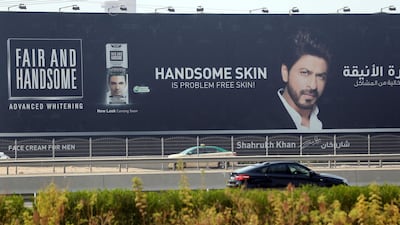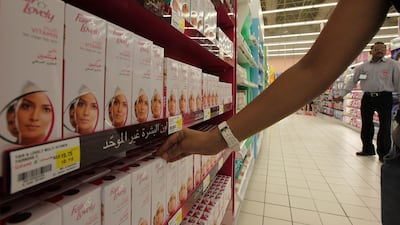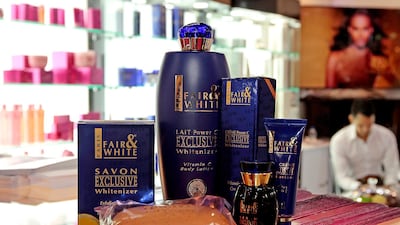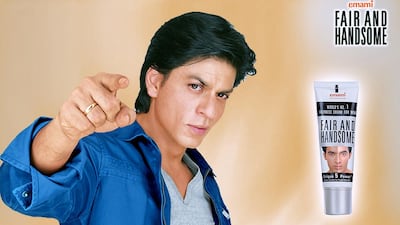Unilever is facing calls to scrap a range of skin lightening products in South Asia, with critics saying a rebranding announced on Thursday was a "gimmick" that did not fully resolve the problem.
Fair & Lovely products are sold across Asia, but the brand has long been criticised for perpetuating negative racial stereotypes and the company has faced intensified pressure in the wake of the Black Lives Matter movement.
On Thursday, Unilever announced it was dropping the word "fair" from the name, a move applauded by some but criticised by others, with many people on social media in India saying it did not go far enough.
One Twitter user urged the company to "pull the plug on the product", while another said if the brand was "targeting the same set of people even with a different name, it doesn't become any less problematic", calling the change "a gimmick".
A spokeswoman for the company said it was removing all references to whitening and lightening from its branding and that the name change was "not the end destination".
"We will also continue to evolve our advertising, to feature women of different skin tones, representative of the variety of beauty across India and other countries. We are fully committed to caring for and celebrating all skin tones," she said.
India's longstanding obsession with light skin has given rise to a lucrative cosmetics industry with a host of products claiming to offer darker-skinned Indians a fairer and better version of themselves, often endorsed by top Bollywood actors.
After years of criticism and campaigns against such products, many brands moved to calling them "skin brightening", "whitening" or "lightening" creams and face washes.
Unilever said it would remove the words "fair/fairness", "white/whitening", and "light/lightening" from all its products and rename "Fair & Lovely" in the next few months.
Kavita Krishnan, an activist with the All India Progressive Women's Association, urged the company to acknowledge the "toxic culture" it promoted over decades by equating fairness with beauty, confidence and success.
Aishwarya Rai Bachchan in an early Fair & Lovely ad:
"They have to answer for all of this," said Krishnan, adding that her dark skin meant she often had shopkeepers try to push such products on her.
"They should be dropping the product," she told the Thomson Reuters Foundation.
Kavitha Emmanuel, founder of India's Dark Is Beautiful campaign, welcomed the move, but said the battle was not over.
"Is the narrative on skin whitening really being challenged, or is it just a surface level declaration? This we are yet to see," she said in emailed comments.
"It takes more than a change of name to erase the damage."







